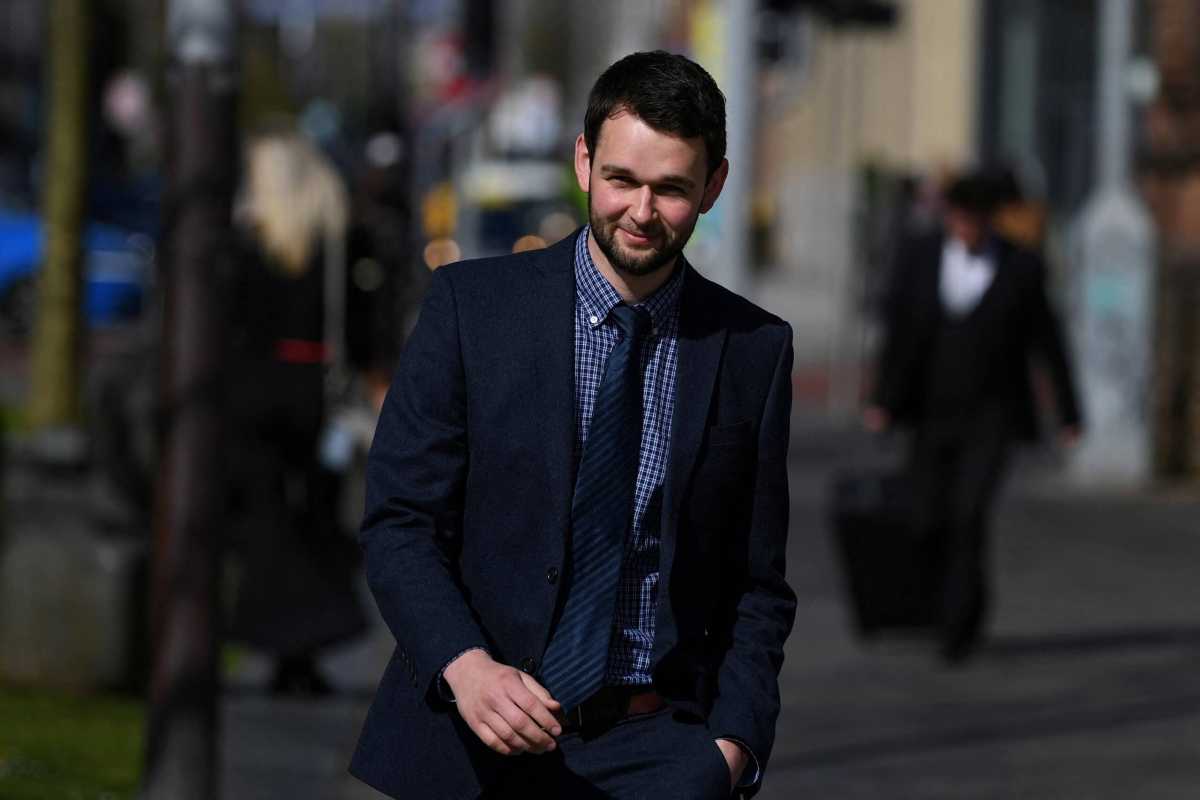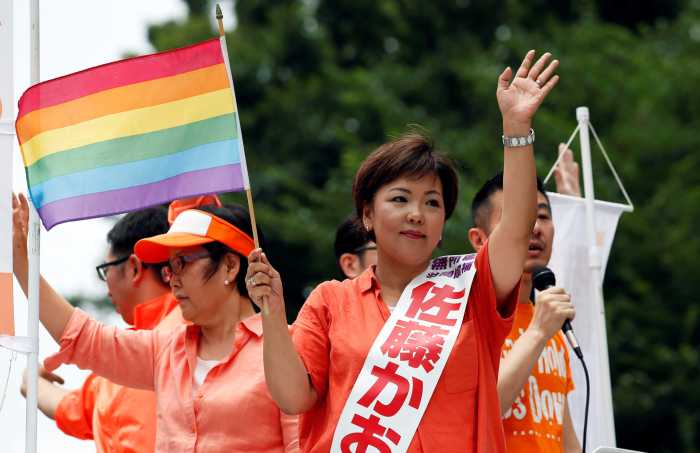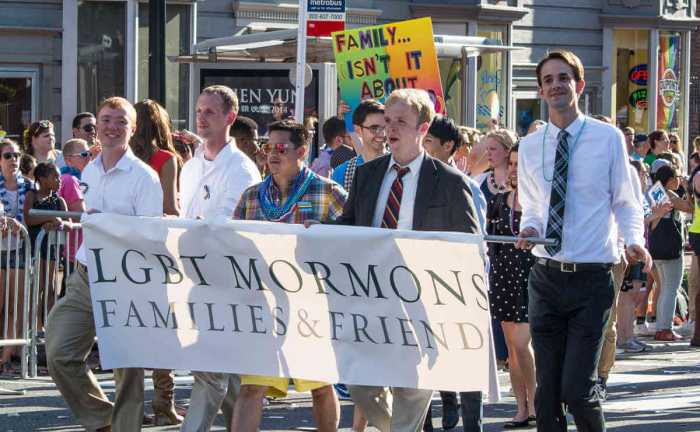The European Court of Human Rights issued a decision on January 6 rejecting an appeal by Gareth Lee, an Irish LGBTQ rights activist, from the Supreme Court of the United Kingdom’s reversal of his victory in the lower courts against Ashers, a bakery that declined his 2014 order for a cake extolling same-sex marriage.
Same-sex marriage became legal in the England, Wales, and Scotland in 2014, but Northern Ireland lagged behind, despite earnest efforts by Lee and other LGBTQ rights campaigners. Lee planned to attend a “private event” on May 14, 2014, to mark the end of Northern Ireland Anti-Homophobia and Transphobia Week and to note progress in the campaign for same-sex marriage, which had been narrowly rejected in a recent vote by the Northern Ireland Assembly.
Lee decided to bring a cake to the event and went to Ashers, where he ordered a cake to be decorated with a picture of “Bert and Ernie,” the logo of QueerSpace (an Irish LGBT rights organization), and the caption “Support Gay Marriage.” A clerk took his order, but he was later informed by telephone that the order should not have been taken. Ashers would not fulfill his order because the owners of the business, Mr. and Mrs. McArthur, were “Christians” and unwilling to prepare a cake supporting gay marriage. He was offered an apology and a refund. He found another bakery to provide the cake and made a complaint against Ashers to the Equality Commission of Northern Ireland.
Lee claimed a violation of two local laws: The Equality Act (Sexual Orientation) Regulations of 2006 and the Fair Employment and Treatment (Northern Ireland) Order of 1998, both of which prohibit direct or indirect discrimination on grounds of an individual’s sexual orientation, political opinion, or religious belief by businesses providing goods and services to the public.
His case was argued first in a County Court, which found in Lee’s favor under both of these laws. Ashers appealed and the Court of Appeals affirmed the County Court’s ruling, which had awarded Lee damages of 500 British Pounds. But Ashers’ second appeal, to the Supreme Court, was successful. That court found that Ashers would have refused to make the cake regardless of the sexual orientation, political opinions, or religious views of Mr. Lee, because they objected to the message on the cake. Indeed, the court found that Ashers would not have made a cake expressing support for gay marriage from any customer, regardless of the customer’s sexual orientation.
The Supreme Court wrote, “People of all sexual orientations, gay, straight or bisexual, can and do support gay marriage. Support for gay marriage is not a proxy for any particular sexual orientation.” The Court noted evidence that Ashers employed gay people and served gay people in the past, and concluded that it “did not, therefore, accept the reason for refusing to supply the cake was that the applicant was thought to associate with gay people: the reason was the McArthurs’ religious objection to the cake.”
In their defense, the McArthurs had relied upon religious and political rights guaranteed by the European Convention on Human Rights. Commented the Supreme Court: “The bakery could not refuse to provide a cake — or any other of their products — to Mr. Lee because he was a gay man or because he supported gay marriage. But that important fact does not amount to a justification for something completely different — obliging them to supply a cake iced with a message with which they profoundly disagreed.” The Court concluded that compelling Ashers to make and sell such a cake would violate its rights under the European Convention.
The UK Supreme Court’s opinion also noted and discussed the then-recent US Supreme Court decision in Masterpiece Cakeshop, in which that court overturned a decision by the Colorado Court of Appeals that a baker had unlawfully discriminated against a same-sex couple by refusing to make a wedding cake for them, but the UK court pointed out that the US court had not ruled on whether the baker had a constitutional right to refuse to make the cake, disposing of the case instead based on a finding that the Colorado Human Rights Commission had exhibited hostility towards the baker’s religious beliefs during a hearing on the charge against him, and had treated inconsistently complaints against other bakers who had refused to take orders for cakes condemning same-sex marriage.
The European Court hears appeals from domestic courts on claims that applicants’ rights under the European Convention were violated. The European Court decided that Mr. Lee had forfeited his right to bring a complaint based on the European Conventions provisions that have generally been interpreted as prohibiting anti-gay discrimination because he had not relied upon them in his litigation in the British courts.
The British courts are bound to rule on claims asserted under the Convention in a manner consisting with the Convention’s interpretation by the European Court, but the Court noted that none of its past precedents had ruled directly on a case presenting exactly this kind of dispute, where both parties sought to rely on their rights under the Convention, calling for a “balancing” of rights. Lacking such a direct precedent, the British courts would have to consider Lee’s asserted Convention rights if he raised them and try to reach a decision consistent with the Convention. But Lee had not raised his Convention rights in the British Courts.
It is a general principle of appellate jurisdiction that in order to present a legal claim or theory to an appellate court, one has first to present it to lower courts and give them a chance to consider the claims. In this case, the European Court held, Lee’s failure to assert his Convention rights in the British Court meant that his appeal to the European Court was not “admissible.” The Court commented that “the domestic courts were tasked only with balancing the applicant’s very specific rights under the 2006 Regulations and the 1998 Order against the McArthurs’ rights under Articles 9 and 10 of the Convention. At no point were they tasked with balancing his Convention rights against those of the McArthurs. It is clear from the impassioned third-party interventions in this case that this balancing exercise is a matter of great import and sensitivity to both LGBTIQ communities and to faith communities. . . Given the heightened sensitivity of the balancing exercise in the particular national context, the domestic courts were better placed than this Court to strike the balance between the competing Convention rights of the applicant, on the one hand, and the McArthurs, on the other.”
Since the McArthurs invoked the Convention in their defense, it was incumbent upon Lee to present any affirmative arguments he might have under the Convention before the British courts rather than to raise them for the first time in his application to the European Court. “As such an approach is contrary to the subsidiary character of the Convention machinery,” wrote the Court, “the court considers that the applicant has failed to exhaust domestic remedies in respect of his complaints under Articles 8, 9, and 10 of the Convention, read along and together with Article 14. Accordingly, these complaints must be rejected as inadmissible.”
The Court commented that the decision was by “a majority” of the seven-member “chamber” that considered the application, but it did not specify the vote breakdown, and there is no written dissenting opinion.
Thus, this is the end of the line for Lee’s case against Ashers. Same-sex marriage became legal in Northern Ireland in January 2020. There was a delay of several years due to indecisive election results which stalled action by the Assembly while the various contending parties, none of which had won a majority, attempted to form a governing coalition. Once they succeeded, the measure passed.
Lee is represented by Mr. C. Moynagh of Phoenix Law in Belfast.



































